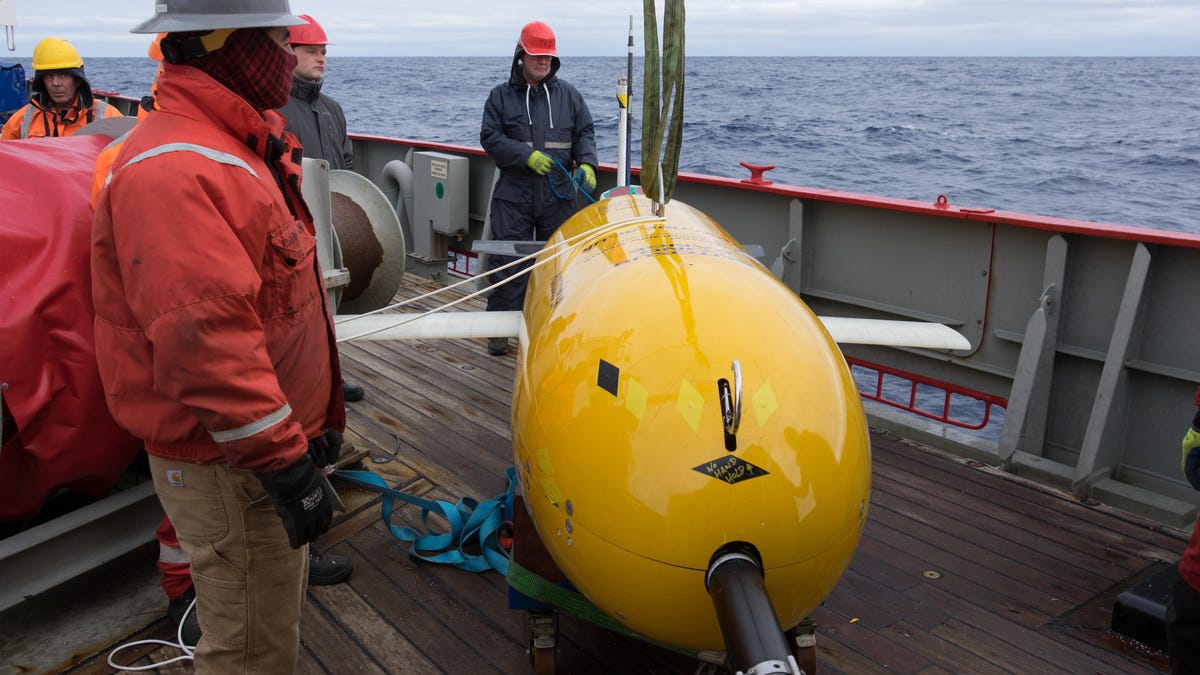Boaty McBoatface is back with new science
The internet's own mini-sub dove deep into the chilly abyss and came back with the goods.

Boaty, seen here on a bigger boaty.
After all these years, it does sort of feel like we all live on this yellow submarine. The intrepid Boaty McBoatface is back in the news yet again now that the first scientific findings using data from the internet's fave autonomous sub have been published.
Back in April of 2017, the mini-sub with the goofy name spent three days maneuvering through the dark, cold and mountainous waters of the Southern Ocean. Over 180 kilometers (112 miles) it measured the temperature, salt content and turbulence of the water at the bottom of this foreboding sea.
Boaty's data helped scientists make a connection between intensifying winds over the Southern Ocean and rising sea levels.
Basically, winds near the bottom of the world have been getting stronger thanks to the Antarctic hole in the ozone layer and rising greenhouse gas emissions. The winds appear to increase turbulence deep in the ocean, as detected by Boaty. This turbulence in turn stirs up colder, denser water from the deep with warmer water above. The resulting warming of the water is a significant contributor to rising sea levels, according to researchers from the UK's University of Southampton.
"Our study is an important step in understanding how the climate change happening in the remote and inhospitable Antarctic waters will impact the warming of the oceans as a whole and future sea level rise," explained Professor Alberto Naveira Garabato, who led the project, in a press release.
You may remember that "Boaty McBoatface" was the winner of an online contest asking the internet to name a new British polar research vessel. In the end, that ship was instead named in honor of Sir David Attenborough and a small yellow drone sub was christened with the noble McBoatface name instead.
Now McBoatface's legacy has been forever enshrined in the annals of science: the new research is published in the latest edition of Proceedings of the National Academy of Sciences.
"This study is a great example of how exciting new technology such as the unmanned submarine 'Boaty McBoatface' can be used," said Dr. Povl Abrahamsen of the British Antarctic Survey.
It might be a small little McBoatface, but it still feels as if we all live on that yellow submarine and the whole internet is all aboard. Everybody! We all live in a....

